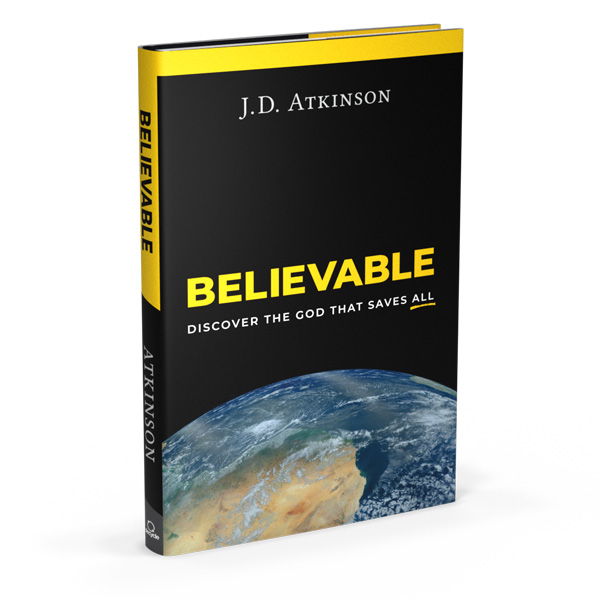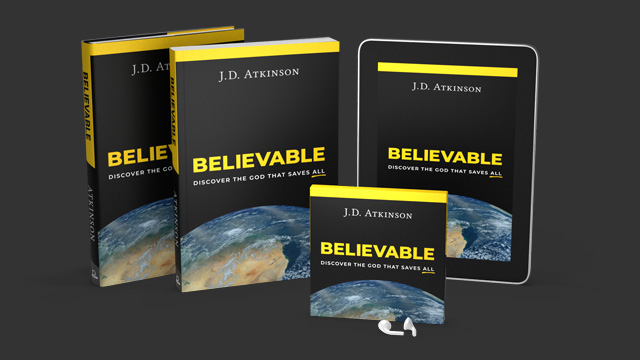Chapter 1: Life
To live is the rarest thing in the world. Most people exist, that is all.
― Oscar Wilde
You are dying. Like a battery, your life began fully charged. But it started draining the moment you took your first breath. The difference between human beings and batteries is that we can’t be recharged. When we run out, it’s game over.
Time seems to accelerate with each passing decade. The years slip by like sand through our fingers. If we’re lucky, we grow old―but one day our time will be up. Every single life is counting down to its scheduled expiration date.
Some will try to leave a legacy. But our great-grandchildren probably won’t care what kind of cars we drove, how beautiful our homes were, or how well-respected we were in our professions. In time, those achievements become meaningless.
Even if mankind could live forever, this planet cannot. Someday the earth’s natural resources will be exhausted. If we do not self-destruct through war, our sun will eventually grow hotter and larger until Earth is either uninhabitable or consumed by fire. Even moving to a neighboring galaxy would not prevent the ever-expanding universe from ultimately entering a state of heat death due to entropy.
There is no escape. No matter where we go or what we do, death lies ahead.
CHOICES, CHOICES
Have you ever heard someone ask, “Why do bad things happen to good people?” Maybe you’ve wondered that yourself. Both good and bad things happen to everyone: wealth and poverty, joy and despair, health and sickness―these can touch any of us, regardless of how we behave or the choices we make.
Consider the multitude of children diagnosed with terminal illnesses each year. The combination of dna from each parent may result in unfavorable genetic mutations. Chemicals, pesticides, and medications a mother comes into contact with during pregnancy can adversely affect her baby’s development. Polluted food and water supplies also contribute to disease. These innocent children didn’t do anything to deserve sickness.
However, many of the difficulties we face are the direct consequences of our own poor choices, factors we have the power to control. Our decisions have an enormous impact on our lives, the lives of those around us, and our children―often for several generations. Realizing this, we usually try to make good choices.
When we face a significant decision, we sometimes sense that we are part of something much larger. We catch brief glimpses of a bigger picture, a greater goal, a common good. We may perceive one option as good and the other bad, but we are always free to choose our own path.
The freedom to make choices comes with a catch: it requires owning the results. In the end, we may either appreciate or regret our decisions and the consequences. But if someone else were to intervene and mitigate the effect of our choice―say, by limiting the joy or pain it brings―our choice would be meaningless. Without reaping the consequences, there is no freedom to choose. This is why our choices must freely result in either smiles or tears, joy or sorrow.
ONE’S RIGHT IS ANOTHER’S WRONG
If a person believes that life is just an accident and there is no creator, a logical goal would be unrestrained self-indulgence.
In the jungle, there is no code of ethics. Animals know neither mercy nor the golden rule. Someone who believes life is a random accident may as well behave like an animal. He is free to act like a psychopath, engaging in every selfish pleasure he can conjure. If he maximizes his enjoyment at the cost of others by deceiving, murdering, and stealing, he should be proud that he did his best and played the game well. He may reason that his opponents shouldn’t have let their guard down, or his intelligence or wealth make him superior. For him, preying on the weak is not shameful; exploitation of opportunity is the key to enjoying this brief life.
Thinly veiled variations of this psychotic mind-set are a recurrent theme in modern magazines, self-help books, and business publications focused solely on achieving one’s own “success” or “happiness,” whatever that may be, and no matter what it costs others. But the happy ending never materializes.
Between 1978 and 1991, a Wisconsin man by the name of Jeffrey Dahmer raped, murdered, and dismembered seventeen young male victims, some of whom he ate. When asked what contributed to his behavior he cited a lack of belief in God, which he admitted “cheapens life.” He went on to say that “If a person doesn’t think that there is a God to be accountable to, then what’s the point of trying to modify your behavior to keep it within acceptable ranges? That’s how I thought, anyway.”
I am not suggesting that humans need to believe in a supreme being to keep themselves from assaulting or eating each other. But if there is no God, those who exercise moral restraint are only doing so for fear of an imaginary deity. If no supreme being exists, each individual is his own final authority. And if a man answers only to himself, why can’t he live as he pleases? What makes Mr. Dahmer’s desires any less valid than another person’s desire to live in peace?
Mr. Dahmer’s peers valued the lives of his victims much more than he did: he was sentenced to sixteen life terms in prison.
Does our entire existence come down to survival of the fittest? Is our only function to kill or be killed? To pillage and plunder for our own amusement, before someone else gets us first? Are we all just animals that have come into being by chance?
Some have suggested that mankind is simply the product of random circumstances. But if that is the case, what is the basis for our collective moral code that chose to avenge Dahmer’s victims? Why do we expect others to behave a certain way?
Why value honesty and equity? Why, since the dawn of time, has humanity failed to keep the very rules they choose to set? Who can really define what is right or wrong?
If our existence is the result of accidental or random forces, there is no logical reason for doing good deeds at the expense of our own self-gratification. Man-made concepts of right and wrong have no objective basis if there is no final authority other than ourselves. If each person is the ultimate judge of their own actions, then morality is a fluid, subjective fabrication of the mind. All that matters is what each person feels is right.
Jeffrey Dahmer believed that “we all just came from the slime and when we died, you know, that was it―there was nothing.” Deep down, though, he questioned these things: as he lay facedown during his arrest, he said, “For what I did I should be dead.”
He had shown absolute disregard for the lives of his victims, yet even the brutal Mr. Dahmer had trouble believing that he alone was the final authority.
WHAT’S THE POINT?
Why are we here? What is the purpose of life?
There are endless theories to explain how we got here. It isn’t possible to delve into each one, let alone expose their fallacies. Rather than analyzing a predefined worldview, the following chapters will start from nothing. We will rely on common sense to find the most reasonable explanations for observable facts. And in the interest of brevity, centuries of heated debate over various topics are distilled down to single chapters.
Everyone is in search of the truth. But how will we know when we’ve finally found it?

